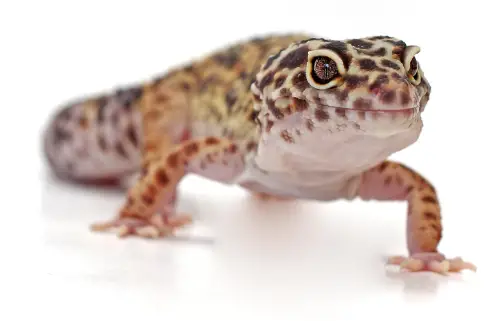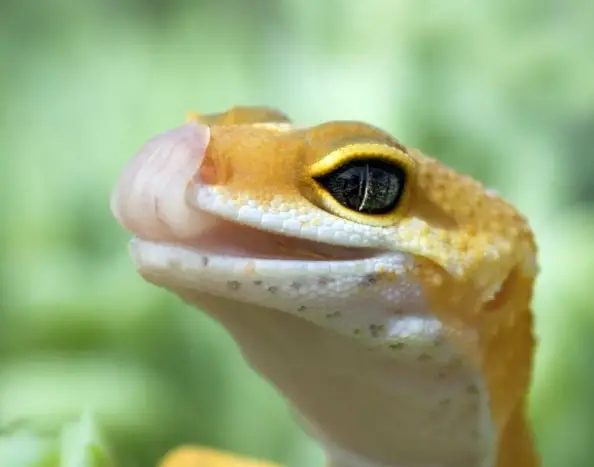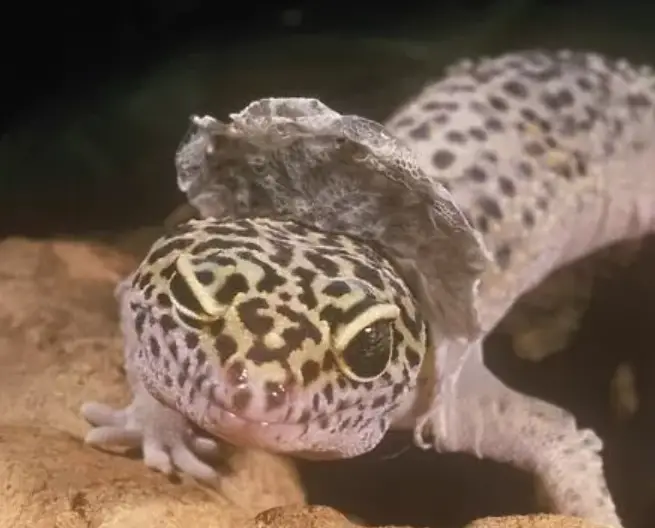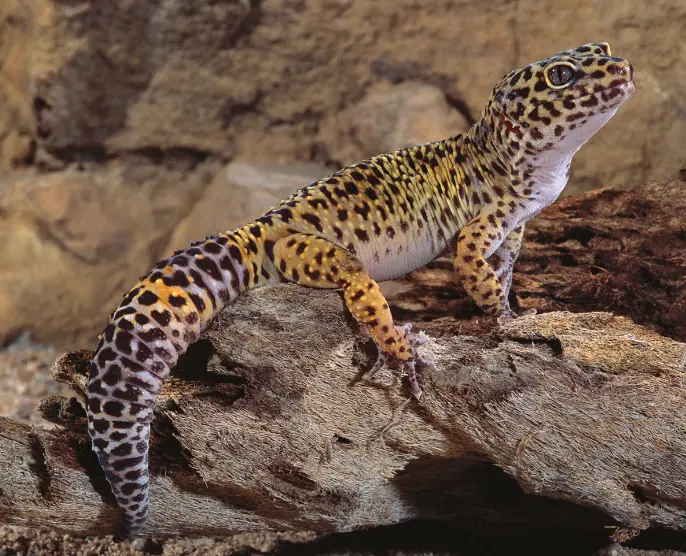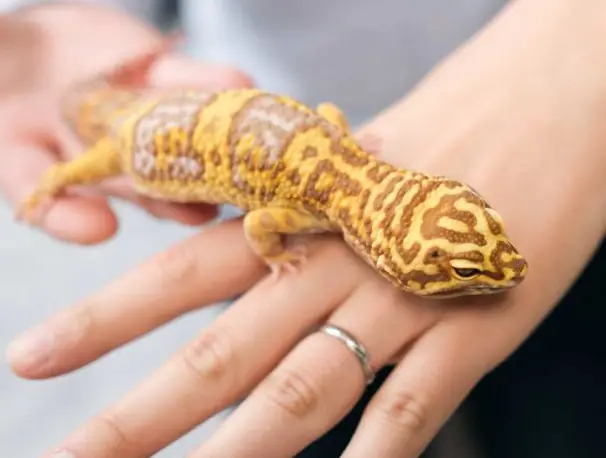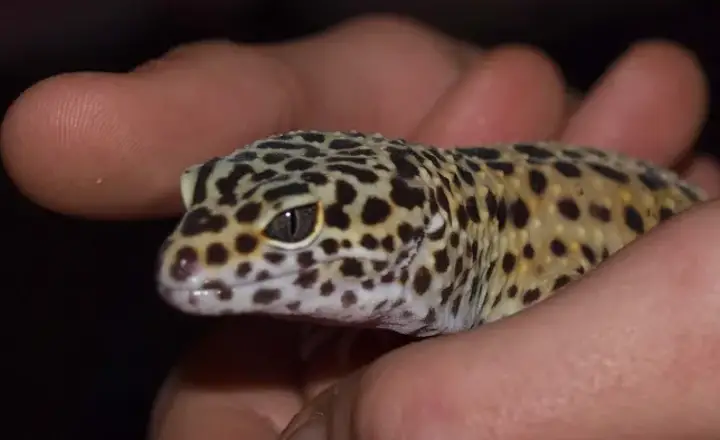When you visit your pet leopard gecko, you see that it is sleeping a lot more than usual.
Not to worry. Even though a leopard gecko’s sleeping habits can be influenced by a variety of conditions, they typically pose little threat.
Although your gecko is probably exhausted, it’s also possible that its environment is too cold or that it’s through brumation.
Concerned about your leopard gecko’s sleeping patterns still? Continue reading to learn more!
How Much Should A Leopard Gecko Sleep Per Day?
A healthy leopard gecko typically sleeps for 12 hours every day. This may sound like a lot, but in the wild, they rested for the majority of the day to save energy from the intense heat of the desert.
Leopard geckos are crepuscular creatures, which means they are more active at dusk when it is cooler outside and there are fewer predators. Being nocturnal, they are also frequently more active at night.
What Are The Reasons Leopard Geckos Sleep More?
The following are the top 7 causes of your leopard gecko’s unusually prolonged sleep and lack of energy:
- Overfeeding
Leopard geckos, like us, become drowsy and lethargic after overeating. As a result, it’s crucial to only feed your leopard gecko once every day.
Additionally, it’s crucial to avoid serving too many worms at once. But remember, underfeeding also makes leopard geckos sluggish.
- Improper diet
Lack of a balanced and healthy diet can cause your leopard gecko to become lethargic and exhausted, which will eventually cause them to sleep more.
Therefore, make careful to provide them with a varied diet that includes mealworms, crickets, and other feeder insects that have greater calcium-to-phosphorus ratios.
Additionally, don’t forget to gut load the insects and sprinkle them with calcium powder prior to serving. This will improve their nutrition and aid in the fight against diseases like Metabolic Bone Disease that are brought on by starvation in your leopard gecko.
- Improper tank temperatures
To compensate, leopard geckos sleep more when their tank is too hot or cold. Ectothermic geckos need heat from the outside to function.
Tank temperatures can therefore have an impact on the health and disposition of your leopard gecko. It is particularly well-recognized that low temperatures have an impact on leopard geckos’ digestive tracts and movement. They can quickly put your gecko into brumation and render it dormant.
Your leopard gecko may also spot for extended periods of time if your tank isn’t heated properly. They do this in an effort to absorb as much heat from the sun as they can.
- Improper lighting hours
Leopard geckos, like many other creatures, rely on light patterns to signal when it’s time to sleep or wake up.
They communicate in the wild by using the sun’s light. When the sun comes out, they find a spot to hide and go to sleep. They emerge and wander around once the sun has set.
Thus, if you keep the lights on all the time in your leopard gecko’s tank, they will always sleep because they will believe it is still daylight.
For this reason, it’s crucial to give your leopard gecko 12 hours of light and 12 hours of darkness each day. Altering this pattern will result in irregular sleep cycles and other problems.
- Stress
Leopard geckos, like humans, can experience sleep issues due to stress. They may become especially tired and prone to napping a lot as a result.
Fortunately, after you take away the stressors, your leopard geckos will frequently become better. For leopard geckos, some of the most typical stresses include:
- Loud, sudden noises
- There are additional animals in the tank.
- Failure to eat
- Overhandling
- Parasites
A leopard gecko with parasites may have lethargy, diarrhea, weight loss, loss of appetite, and Dysecdysis.
In fact, they might sleep more than normal. The number of parasites your leopard gecko has inside of them will determine how long these symptoms last, though.
The symptoms will last longer the higher the parasite burden. Smaller amounts might not even produce symptoms because your gecko’s immune system can quickly eliminate them.
Even in little amounts, though, more dangerous parasites like Crypto might take longer to eradicate. This specific parasite is known to make your leopard gecko resist food, ultimately causing its tail to develop a stick-like appearance.
- Diseases
Your leopard gecko may become lethargic due to a number of illnesses. Since illnesses target your leopard gecko’s immune system, your lizard may require a lot of sleep to fend off illnesses and recover.
These are common ailments that can have an adverse effect on leopard geckos:
-Metabolic Bone Disease
Vitamin D3 and calcium deficiency are the main causes of this illness. Deformities and bone weakening are the results. Of course, if your Leo has bone issues, it will find it difficult to perform daily tasks, which can subsequently cause lethargy.
It will be challenging for them to eat when they have this illness, and the fatality rate is about 95% when it is advanced. Don’t forget to give your feeders a dusting of calcium- and vitamin D3-containing vitamins.
-Gout
You might be surprised to learn that leopards, like people, can develop gout. When uric acid builds up, it forms crystals that develop in specific places of a leopard’s body, in this case, the joints and legs. This condition is known as gout.
This may cause that area of your leopard’s body to experience excruciating discomfort. Therefore, even when they don’t feel uncomfortable, they simply stop moving altogether to avoid moving that particular joint and avoid suffering pain.
When To Bring Your Sleepy Leopard To A Vet?
If your gecko exhibits symptoms of disease, you should seek quick veterinary care. As with any sickness, it’s imperative to treat your gecko right away before it’s too late.
Without your veterinarian’s permission, do not self-medicate or attempt to resolve this problem. Your leopard gecko may only receive the correct diagnosis and treatment from them.
In order to guarantee that a suitable treatment plan is established, be sure to describe your pet’s behavior to your veterinarian in detail.
Your veterinarian will probably recommend antibiotics for your gecko, but if surgery is required, it can be done. If you want your gecko to heal quickly, make sure you carefully follow all the directions.
Conclusion
In the end, feeding and housing your leopard geckos properly will ensure a healthy sleeping schedule. Your leopard gecko will sleep better if its life is easier and less stressful.
